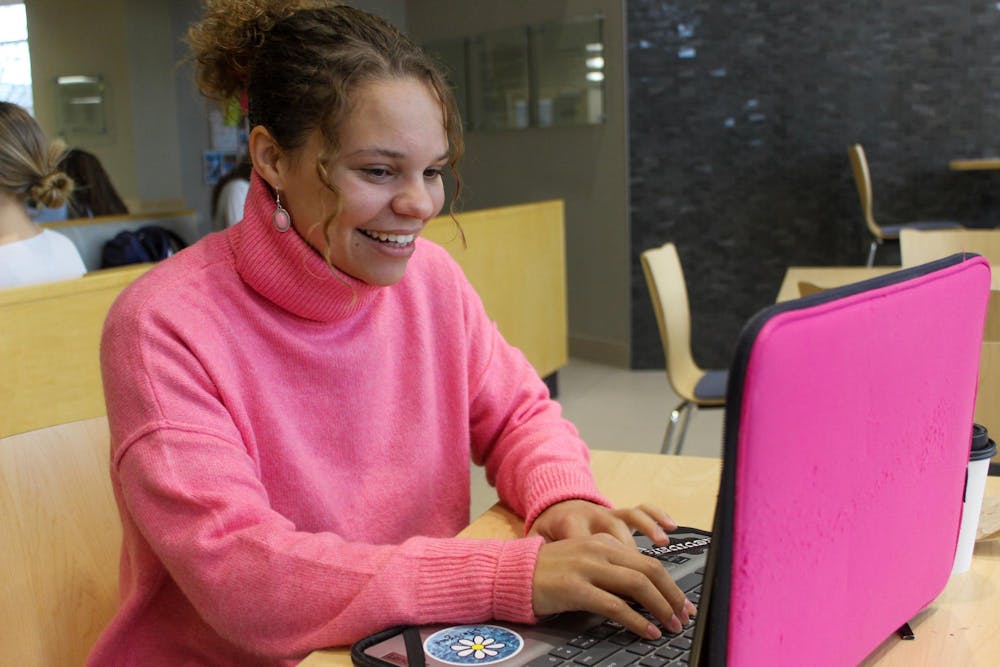The first hints of spring are settling over campus — along with spring bills, aid forms and more than a little trepidation for many students.
While often accompanied by feelings of fear and intimidation, getting a grip on finances doesn’t have to send students crawling back to their groundhog home for a long winter this year.
Instead, Taylor students are learning to put their best foot forward, sharing their tips for budgeting, financial aid and other money practices.
“It’s just important to have a plan,” Brie Hill, a senior accounting major, said. “But it’s all about balance.”
For Hill, a spender, this means keeping track of purchases and thinking over what will and won’t be worth the cost. It also means taking advantage of dining dollars and gift cards, along with budgeting how much she spends in a week.
At the same time, her biggest tip was to extend grace at the end of the day.
“I feel like because I have a better handle on my finances now than I used to, I have more freedom to spend or to extend [myself] grace in certain areas,” Hill said. “I'm learning just to lean more into God's grace.”
Looking beyond money spent, however, Robert Sommers, the executive director of financial aid here at Taylor, emphasized how students can maximize their financial aid — but more pressingly, he urged students to focus on first taking on a role of monetary responsibility.
“There’s a lot of money just left on the line,” Sommers said. “I would encourage students to take ownership of it.”
Ownership is a major theme for Sommers, who said he sees too many students neglect taking agency in their financial accounts.
Filing the FAFSA, keeping up with bills and repayment plans and understanding scholarship renewal criteria are all student obligations, he noted, not parental requirements.
Continuing to pursue departmental aid, or finding work on or off-campus were also included in the director’s list of student recommendations.
Perhaps his biggest piece of advice, though, was to not become daunted by the process.
“The sooner that students ask those questions to allow us to help them, the sooner … it actually eases a lot of anxiety around college,” Sommers said. “There's some easy steps and there's all kinds of good resources out there to help that are free.”
He recommended not taking on credit card debt and making loan repayment an immediate priority. He also encouraged students to know their options for repayments and to know loan forgiveness options don’t always pan out.
Many times, he said, the better option is to work debt off instead of hoping a non-career company will forgive the debt
Looking to the future, too, Jordan Dutcher, a senior finance major, encouraged students to think past graduation.
Organizing the Open Hands financial program, Dutcher teaches upperclassmen not only how to develop a budget, but how to stick to it and plan for retirement.
“Everyone has a different style,” Dutcher said. “Definitely prioritize paying off whatever [debt] you have to, but also, you could put literally anything away [into a retirement fund], even 20 bucks. It will eventually be so good in the end for you.”
Far from requiring students to be math-minded savers, money management really is open for everyone. Sommers and Hill explained the important thing isn’t students’ prior knowledge—it’s their willingness to ask questions, stick to their plan and focus as much on the future as they do the present, a point Dutcher also echoed.
With the weather warming, financial navigation doesn’t have to be something that leaves students in the cold.
Instead, Open Hands invites upperclassmen to join them in financial management, and the financial aid office is keeping their doors wide open. All students need is a little grace and a solid budget: a firm foundation to serve them for years to come.





